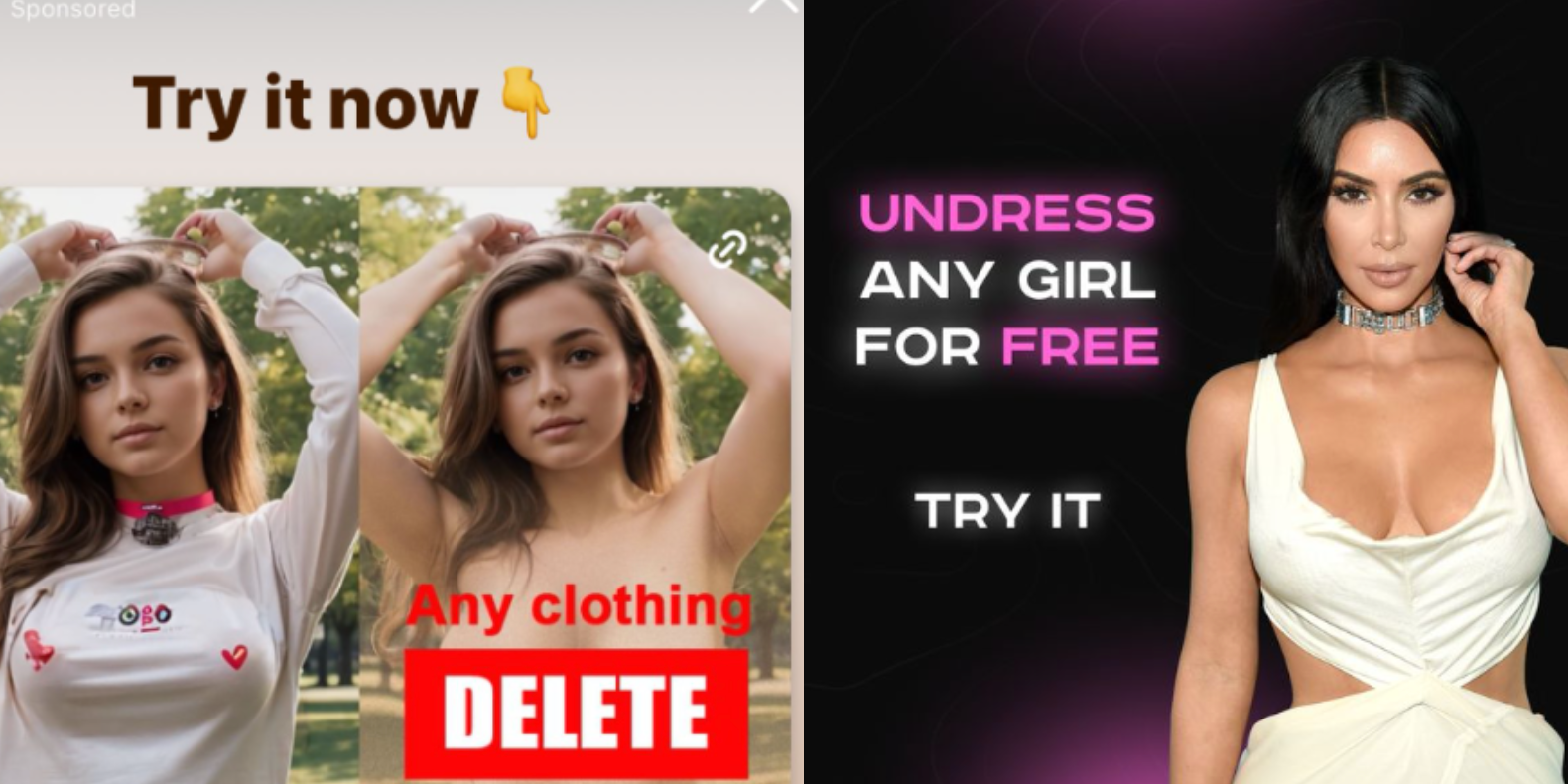- cross-posted to:
- [email protected]
- cross-posted to:
- [email protected]
Instagram is profiting from several ads that invite people to create nonconsensual nude images with AI image generation apps, once again showing that some of the most harmful applications of AI tools are not hidden on the dark corners of the internet, but are actively promoted to users by social media companies unable or unwilling to enforce their policies about who can buy ads on their platforms.
While parent company Meta’s Ad Library, which archives ads on its platforms, who paid for them, and where and when they were posted, shows that the company has taken down several of these ads previously, many ads that explicitly invited users to create nudes and some ad buyers were up until I reached out to Meta for comment. Some of these ads were for the best known nonconsensual “undress” or “nudify” services on the internet.



Yeah it’s an interesting problem.
If we go down the path of ideas in the mind and the representations we create and visualize in our mind’s eye, to forbid people from conceiving of others sexually means there really is no justification for conceiving of people generally.
If we try to seek for a justification, where is that line drawn? What is sexual, and what is general? How do we enforce this, or at least how do we catch people in the act and shame them into stopping their behavior, especially if we don’t possess the capability of telepathy?
What is harm? Is it purely physical, or also psychological? Is there a degree of harm that should be allowed, or that is inescapable despite our best intentions?
The angle that you point out regarding writing things down about people in private can also go different ways. I write things down about my friends because my memory sucks sometimes and I like to keep info in my back pocket for when birthdays, holidays, or special occasions come. What if I collected information about people that I don’t know? What if I studied academics who died in the past to learn about their lives, like Ben Franklin? What if I investigated my neighbors by pointing cameras at their houses, or installing network sniffers or other devices to try to collect information on them? Does the degree of familiarity with those people I collect information about matter, or is the act wrong in and of itself? And do my intentions justify my actions, or do the consequences of said actions justify them?
Obviously I think it’s a good thing that we as a society try to discourage collecting information on people who don’t want that information collected, but there is a portion of our society specifically allowed to do this: the state. What makes their status deserving of this power? Can this power be used for ill and good purposes? Is there a level of cross collection that can promote trust and collaboration between the state and its public, or even amongst the public itself? I would say that there is a level where if someone or some group knows enough about me, it gets creepy.
Anyways, lots of questions and no real answers! I’d be interested in learning more about this subject, and I apologize if I steered the convo away from sexual harassment and violation. Consent extends to all parts of our lives, but sexual consent does seem to be a bigger problem given the evidence of this post. Looking forward to learning more!
I think we’ve just stumbled on an issue where the rubber meets the road as far as our philosophies about privacy and consent. I view consent as important mostly in areas that pertain to bodily autonomy right? So we give people the rights to use our likeness for profit or promotion or distribution. And what we’re giving people is a mental permission slip to utilize the idea of the body or the body itself for specific purposes.
However, I don’t think that these things really pertain to private matters. Because the consent issue only applies when there are potential effects on the other person. Like if I talk about celebrities and say that imagining a celebrity sexually does no damage because you don’t know them, I think most people would agree. And so if what we care about is harm, there is no potential for harm.
With surveillance matters, the consent does matter because we view breaching privacy as potential harm. The reason it doesn’t apply to AI nudes is that privacy is not being breached. The photos aren’t real. So it’s just a fantasy of a breach of privacy.
So for instance if you do know the person and involve them sexually without their consent, that’s blatantly wrong. But if you imagine them, that doesn’t involve them at all. Is it wrong to create material imaginations of someone sexually? I’d argue it’s only wrong if there is potential for harm and since the tech is already here, I actually view that potential for harm as decreasing in a way. The same is true nonsexually. Is it wrong to deepfake friends into viral videos and post them on twitter? Can be. Depends. But do it in private? I don’t see an issue.
The problem I see is the public stuff. People sharing it. And it’s already too late to stop most of the private stuff. Instead we should focus on stopping AI porn from being shared and posted and create higher punishments for ANYONE who does so. The impact of fake nudes and real nudes is very similar, so just take them similarly seriously.